International Heritage Centre blog
Sweden saves the day!
Sweden saves the day!
One of my first projects as the new archive assistant late last year was to catalogue nineteen boxes of correspondence pertaining to The Salvation Army’s provisional International Headquarters that was set up during the Second World War…
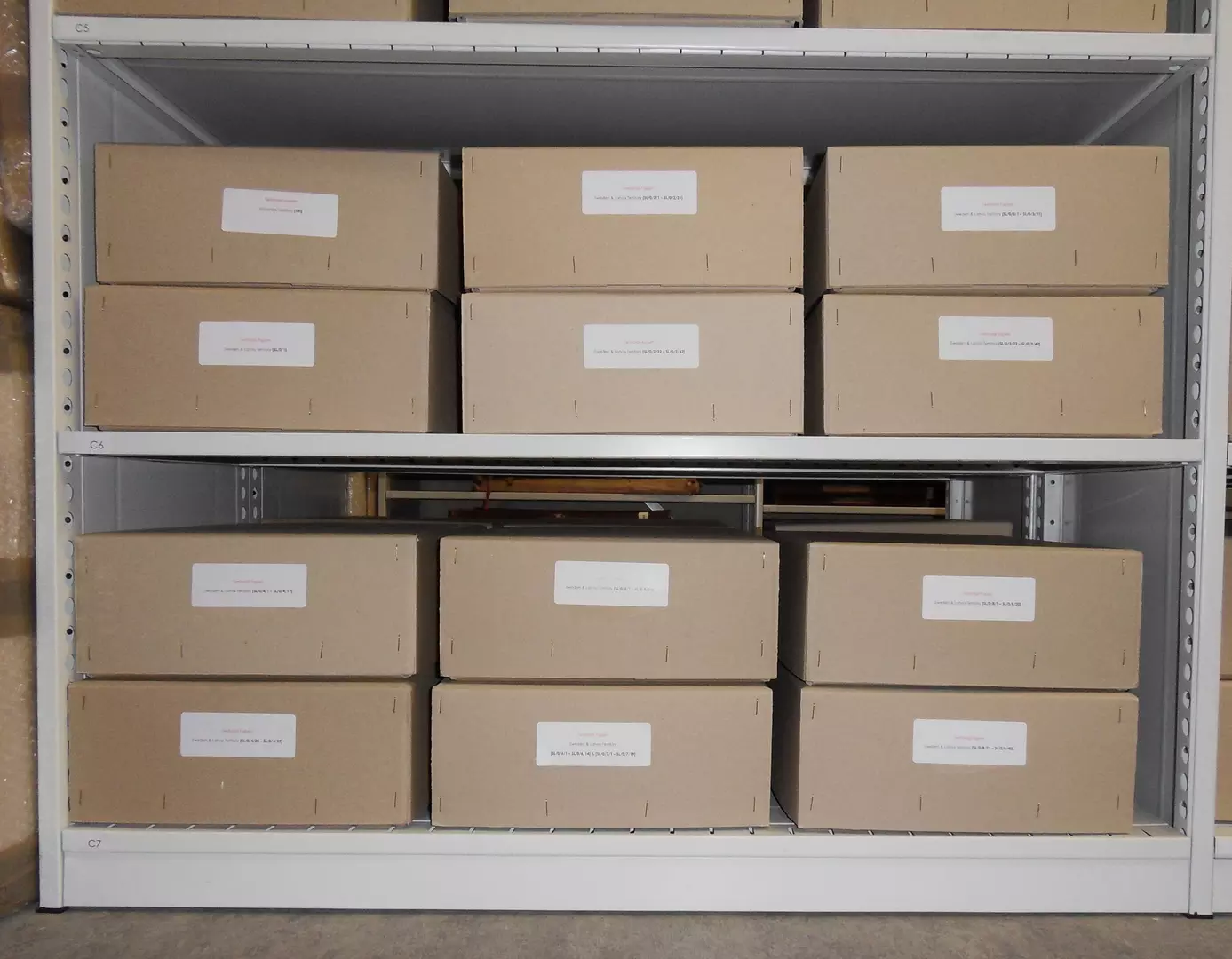
Like many other international organisations, The Salvation Army was significantly impacted by the conflict that enveloped Europe in the mid-twentieth century. In particular, territories across mainland Europe suffered increasing breakdowns in communication with London’s International Headquarters. As an antidote to this, due to the country’s neutral stance, in 1941 Swedish officers Commissioner Karl Larsson and Adjutant Erik Wickberg were called upon to set up a de facto headquarters for mainland Europe in the Swedish Territory for the remainder of the war. Although Sweden sustained its neutrality, the ambiguity of this situation impaired its relationships with both the Allies and the Axis and consequently, Swedish Salvation Army officers were also forced to cut off all formal communication with the organisation’s International Headquarters in London and assume sole responsibility for work in mainland Europe.
The collection itself documents how Sweden came to play a central role in the coordination of Salvation Army activity during this period. For example, in the following letter from Erik Wickberg dated 7 October 1940, he states that despite Sweden suffering breakdowns in postal communications with Holland and Belgium, they managed to recover connections with these two countries and again communicate with officers appointed there. Although this suggests perhaps a positive impact of Sweden’s neutrality in being able to re-establish relationships with other European countries, his additional reference to the continued breakdown in contact with both occupied and unoccupied areas in France reinforces the complications that arose as a result of their impartial attitude toward both sides. This letter also illustrates the increasing influence and involvement of Karl Larsson in coordinating Salvation Army activity and connections across Europe in the 1940s.
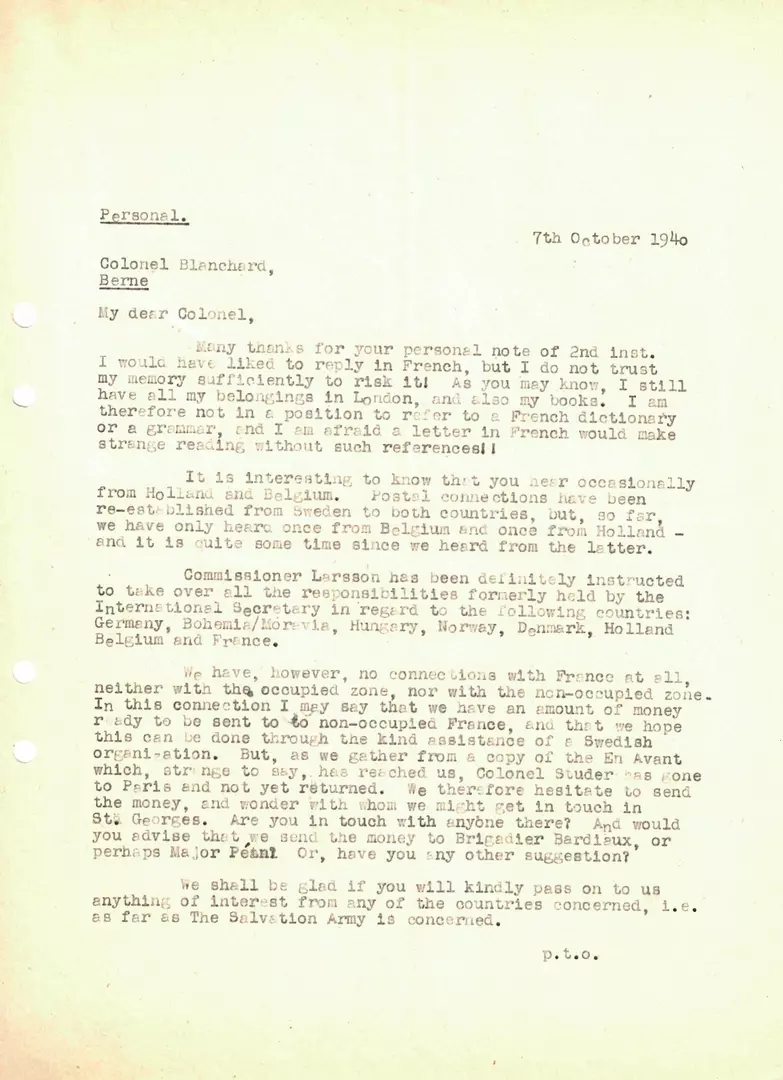
Following his service as Territorial Commander in Sweden, in 1949 Commissioner Larsson was awarded the highest Salvation Army honour for distinguished service: the Order of the Founder. This was in recognition of fifty years of officership that involved ‘outstanding leadership’ and being ‘a Salvationist standard-bearer extraordinary’ across six countries including Sweden. Before becoming the highest ranking officer in the entire organisation in 1969 - General – Erik Wickberg’s early appointments included corps officership, cadet training and roles as private secretary to the Territorial Commander for Germany and to the International Secretary for Europe. These all led him to the post of Sweden’s Liaison Officer for International Headquarters which he began in 1939 when war broke out. It was this appointment that led to his promotion to the rank of Major in June 1940 and his fulfilment of an integral role in Salvation Army leadership in Europe during the Second World War.
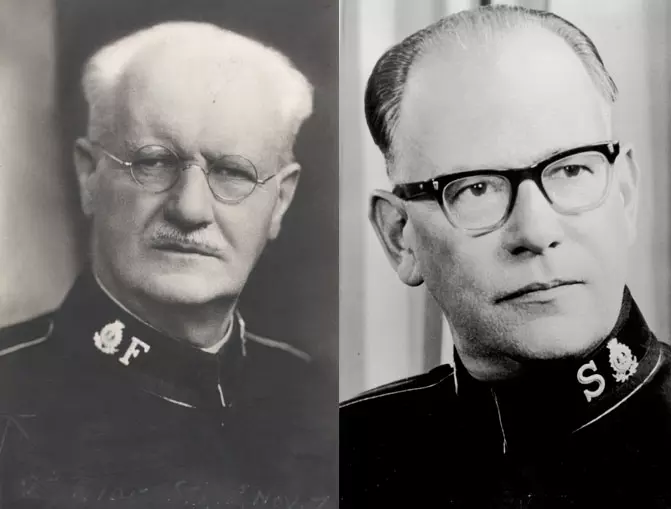
So, what else is in the collection?
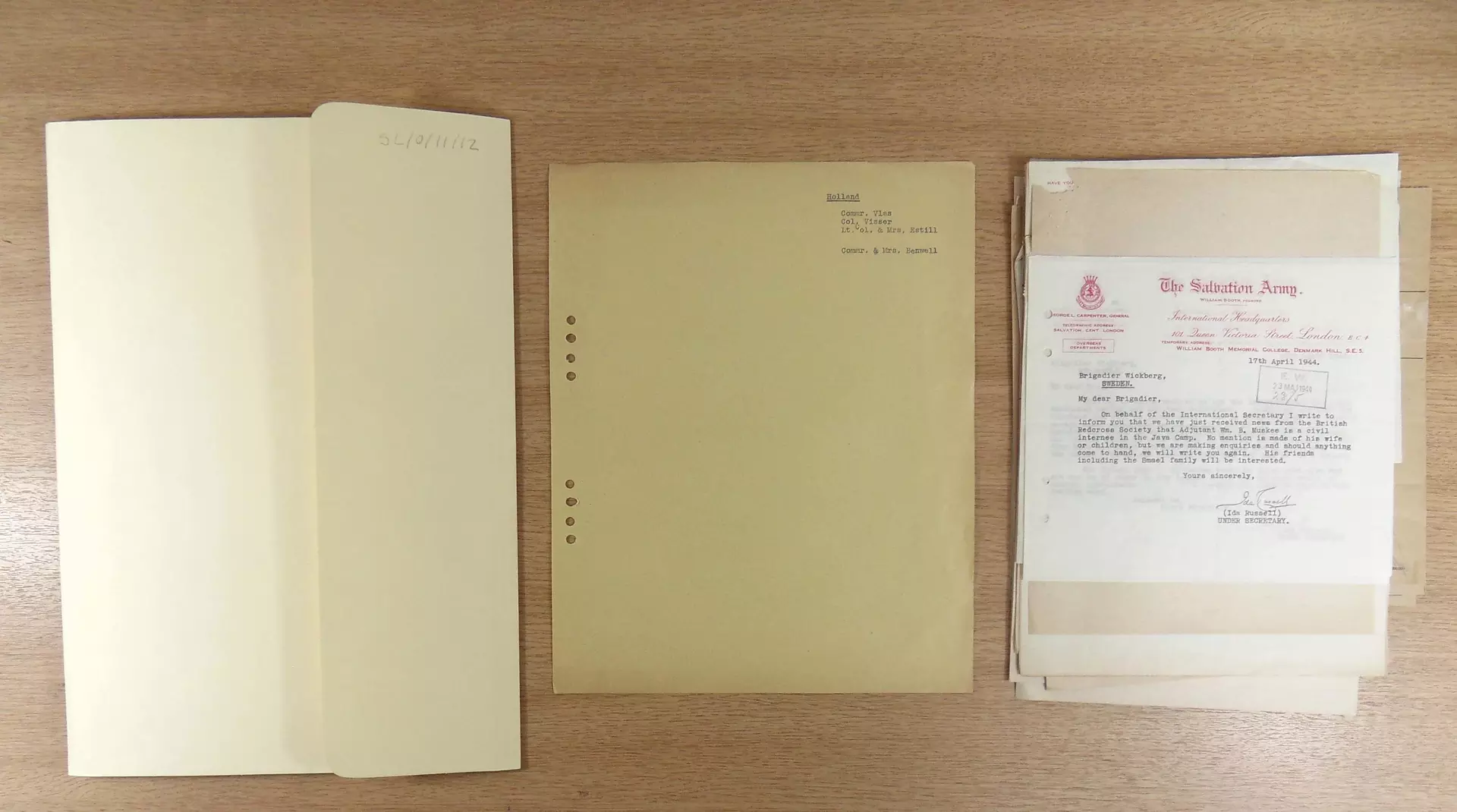
The main body of the collection documents the work of The Salvation Army across ten mainland European territories between 1941 and 1945: Belgium, Czechoslovakia, Denmark, Finland, France, Germany, Holland, Hungary, Norway and Switzerland. When it came to cataloguing the correspondence, it made sense to retain the original order that had been used while the records were still active – alphabetically by country and then by subject matter. Most of the correspondence pertains to routine ecclesiastical and charitable work but when seen all together in this collection it demonstrates the diversity and depth of Salvation Army work. These archives range in subject from the Salvation Army’s worldwide ‘Self Denial’ effort, to continuing social service provision for ‘morally endangered girls’ in local areas, to relief work with refugees across Europe.
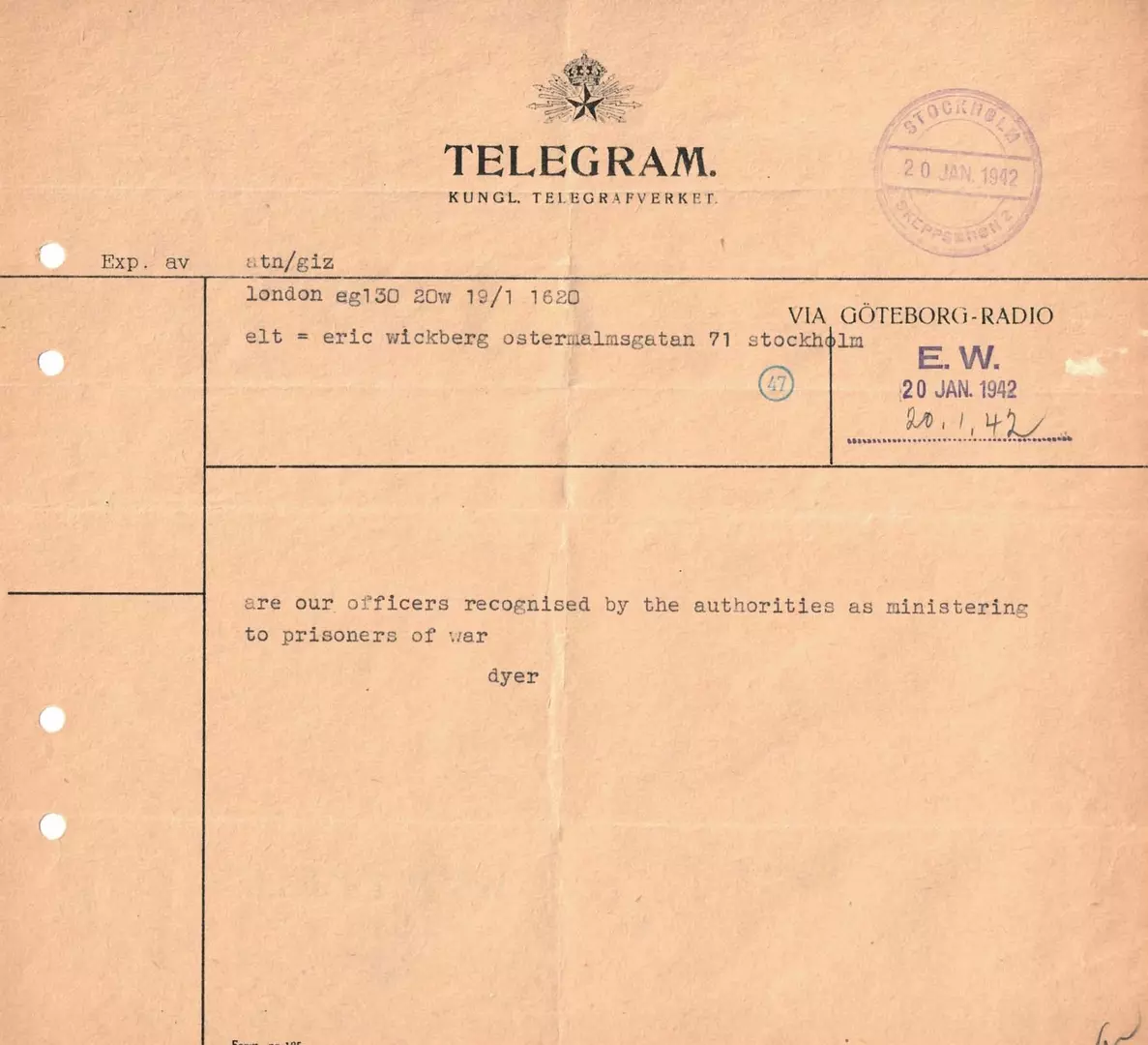
The last file in the series is full of telegrams sent between Swedish International Headquarters and the European territories reporting to it between 1941 and 1945. This example from 20 January 1942 from Commissioner Frank Dyer to Major Erik Wickberg: ‘are our officers recognised by the authorities as ministering to prisoners of war’ relates to problems that Salvation Army officers and volunteers were suffering as a result of attempting to carry out relief work with prisoners of war in occupied zones. This not only indicates the ability of the Salvation Army to adapt and develop in response to current demands, but in addition shows the potential dangers encountered by Salvationists carrying out their work during this time. Salvation Army officers and volunteers demonstrated great dedication in remaining faithful to their calling throughout this mid-century conflict.
Other files also include records of internal changes such as adaptations to the Salvation Army official Orders and Regulations; changes of appointment and promotions of individual officers; annual reports; and editorial plans. Whilst largely containing information about relatively routine matters, the existence of these previously unexplored papers are a mark of the unpredictability and instability of the mid twentieth century and the impact of war in changing the way that international organisations were able to operate during the Second World War. They also provide a crucial insight into the multiplicity of both ecclesiastical and charitable issues that The Salvation Army was involved with on an international level.
Whilst some of these papers are in English, the majority have been written in the mother tongue of the countries that they concern so there is much yet to be discovered from this intriguing collection… If you fancy exploring or translating some of these files for yourself feel free to visit us. Hit the link to head straight to our online catalogue and find out more...
Chloe
April 2018
Read other blogs from the Heritage Centre
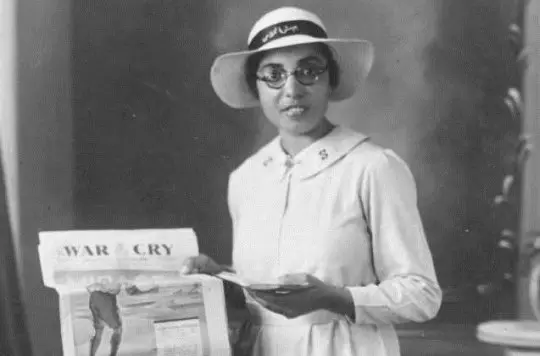
‘Date Palm Corps:’ The Salvation Army in the Middle East
Researching the centenary of the end of the First World War has led us to some documents relating to the war in the Middle East...
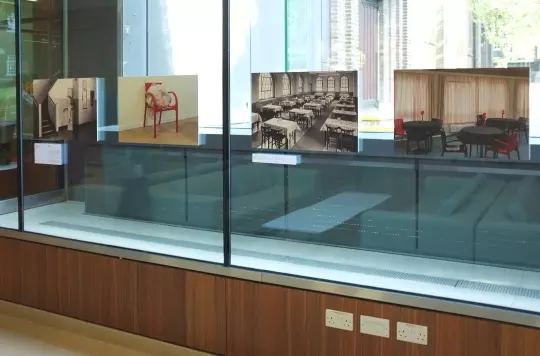
Homelessness photography exhibition previews at William Booth College
Before it moved to its current location in Liverpool, William Booth College hosted Quiet Room, Tony Mallon’s latest photography exhibition...
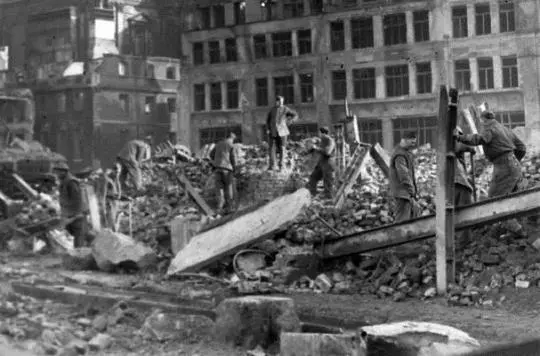
A world so close and yet so far away...
Some reflections on the Sport and General Press Agency photographs of the Second World War...
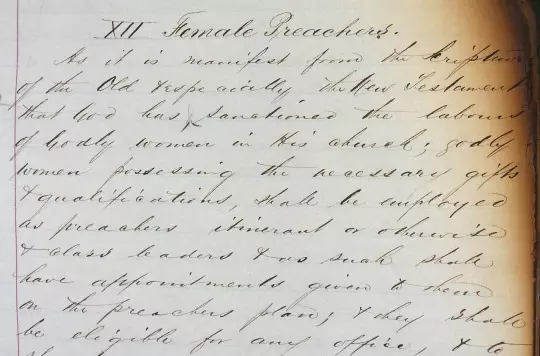
Salvation and Suffrage
An investigation into the relationship between The Salvation Army and the Suffrage campaign at the fin de siècle...